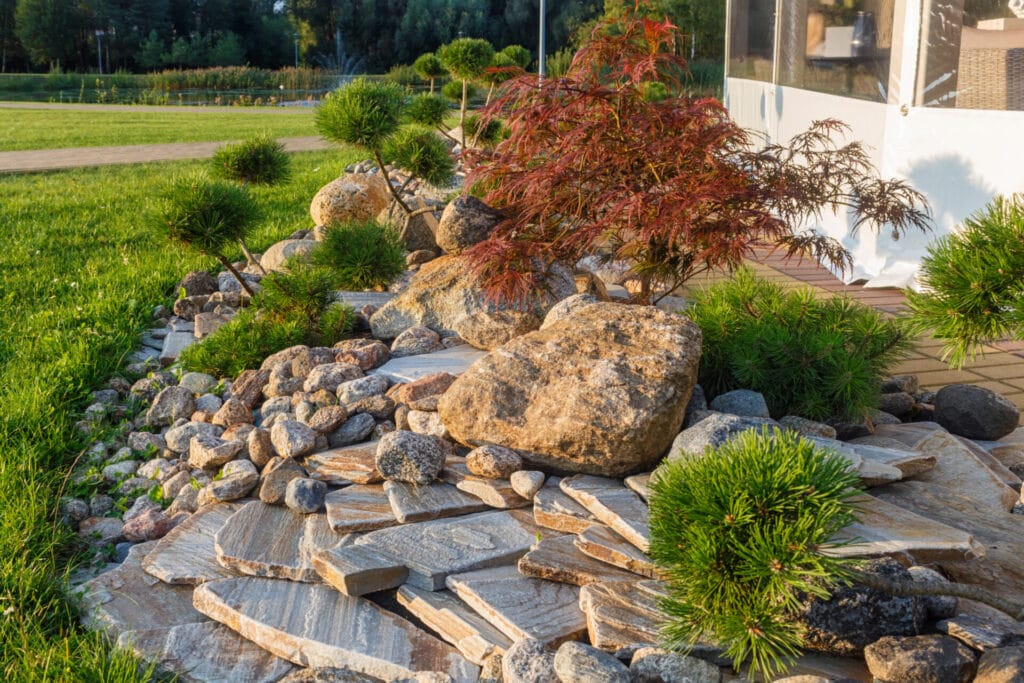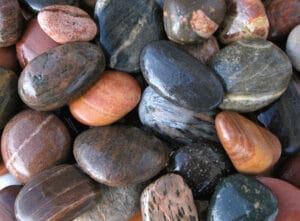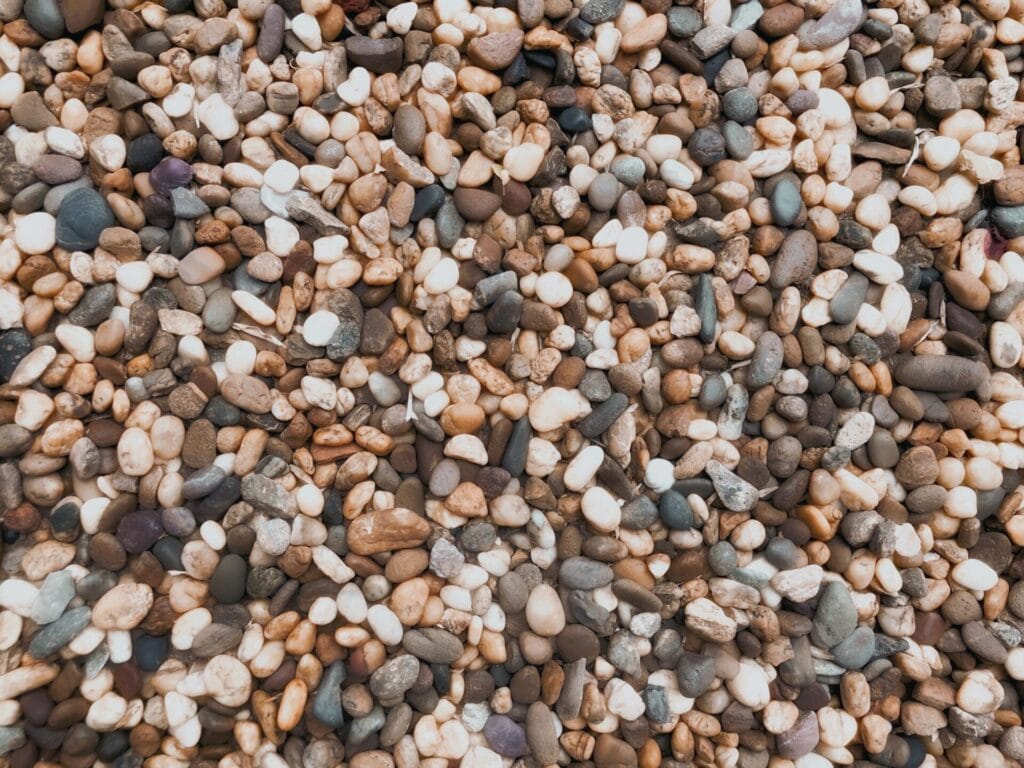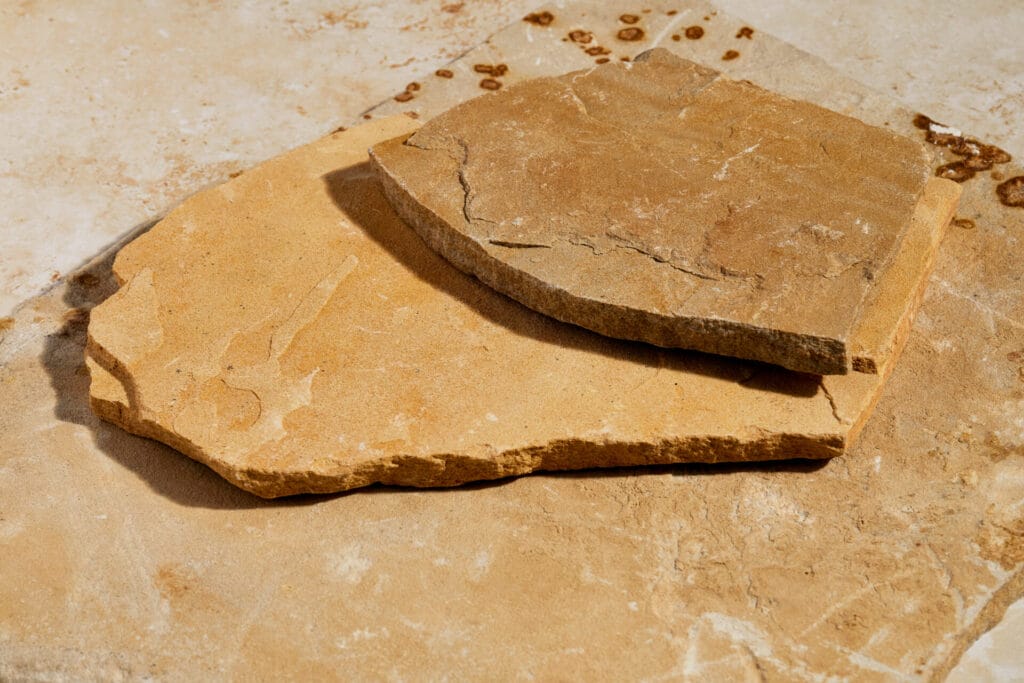
Landscaping rocks have long been a staple in outdoor design, offering a multitude of benefits beyond their aesthetic appeal. From enhancing curb appeal to minimizing maintenance, these versatile elements can transform any outdoor space into a stunning oasis. In this guide, we’ll delve into the world of landscaping rocks, exploring their various types, uses, and benefits.

Smooth and rounded, river rocks are popular for their natural appearance and versatility. They come in various sizes and colors, making them ideal for pathways, edging, and water features.

Known for its small, rounded shape, pea gravel is perfect for creating a soft, natural look in garden beds and walkways. It provides excellent drainage and is easy to work with.

With its porous texture and striking red color, lava rock adds a bold statement to any landscape design. It’s commonly used in xeriscaping and as a mulch alternative due to its ability to retain moisture and suppress weeds.

While technically not a rock, flagstone is a popular choice for landscaping due to its durability and natural beauty. It’s often used for patios, pathways, and retaining walls, adding a rustic charm to outdoor spaces.

For a dramatic focal point or natural barrier, boulders are unbeatable. Available in various sizes and shapes, they can be strategically placed to create visual interest and define different areas of the landscape.

Low Maintenance: Unlike traditional grass lawns, landscaping rocks require minimal maintenance. They don’t need mowing, watering, or fertilizing, making them a practical choice for busy homeowners.
Water Conservation: Many landscaping rocks, such as pea gravel and river rock, promote water conservation by allowing rainwater to penetrate the soil and replenish groundwater. This is especially important in arid regions where water scarcity is a concern.
Longevity: When properly installed, landscaping rocks can last for decades without needing replacement. Unlike organic mulches that decompose over time, rocks retain their appearance and functionality for years to come.
Versatility: From accentuating flower beds to creating hardscape features like patios and fire pits, landscaping rocks offer endless possibilities for customization. They can adapt to any style or theme, whether it’s modern, rustic, or tropical.
Weed Control: One of the biggest headaches for gardeners is dealing with weeds. Landscaping rocks act as a natural weed barrier, preventing weed seeds from germinating and competing with desirable plants for nutrients.
Plan Before You Purchase: Before investing in landscaping rocks, take the time to sketch out your design and measure the area. This will help you determine the quantity and type of rocks needed for your project.
Consider Maintenance Needs: While landscaping rocks are low-maintenance overall, certain types may require occasional cleaning or rearranging to maintain their appearance. Factor this into your decision-making process.
Layer for Depth: To create visual interest and depth in your landscape, use a combination of different-sized rocks and layer them strategically. Start with larger boulders or flagstones as anchor points, then fill in with smaller rocks and gravel.
Mix Textures and Colors: Don’t be afraid to mix and match different types of rocks to add texture and contrast to your design. Combining smooth river rocks with rugged boulders or colorful lava rock can create a dynamic and visually appealing landscape.
Use Edging for Definition: Define borders and edges with rocks to give your landscape a polished look and prevent rocks from spilling onto walkways or flower beds. This helps maintain a tidy appearance and makes maintenance tasks easier.
Landscaping rocks offer a multitude of benefits for homeowners looking to enhance their outdoor spaces. From their aesthetic appeal to their practical advantages such as low maintenance and water conservation, rocks can truly transform any landscape into a beautiful and functional oasis. By understanding the different types of rocks available, their uses, and how to incorporate them effectively into your design, you can create a landscape that’s not only stunning but also sustainable for years to come.
Share this post:
Check other topics that may help you get more insights for your project:





